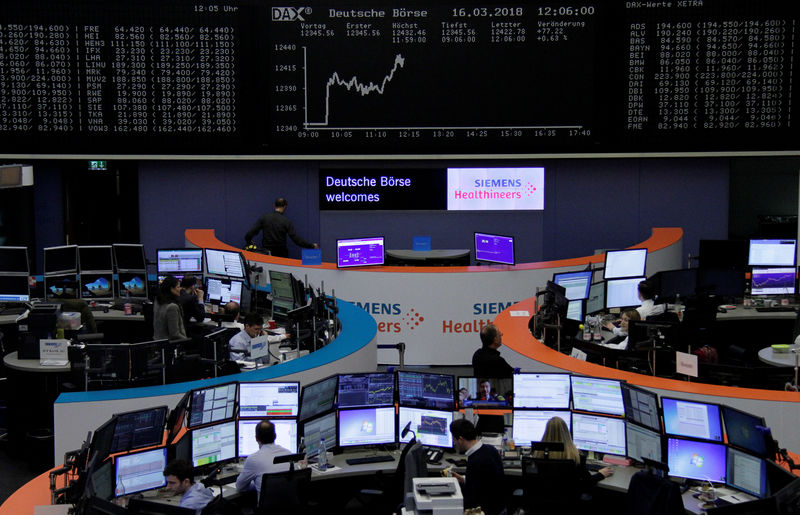By Geoffrey Smith
Investing.com -- Europe’s stock markets bounced sharply on Wednesday on a report claiming that the U.S. and China are actually moving closer to a trade deal, despite a barrage of news flow in recent days that suggests the opposite.
Bloomberg cited “people familiar with the matter” as downplaying President Donald Trump’s remarks on Tuesday, which raised the prospect of no trade deal being signed for over a year, because “he was speaking off-the-cuff."
The news agency’s sources claimed that U.S. negotiators still expect a deal before Dec. 15, when a new round of tariffs on previously untouched goods from China will come into force. However, they noted that there is still no agreement on how far existing tariffs can or should be rolled back, nor how Chinese purchases of U.S. farm goods can be guaranteed.
European markets, which had fallen heavily on Tuesday in response to Trump’s comments, recovered a little less than half their losses on the report. By 5 AM ET (1000 GMT), the Euro Stoxx 600 was up 1.1% at 402.66, while the German DAX was up 1.2% while the U.K. FTSE 100 lagged with a gain of 0.3%, most of the rebound coming through the exchange rate channel instead as the pound popped above $1.3000.
Some weren’t convinced. Hu Xijin, editor of the Communist Party’s Global Times newspaper, implicitly dismissed the news as little more than market manipulation.
On Tuesday, Trump had said – not for the first time – that the so-called ‘phase-1’ agreement “cannot be an even deal,” implying a rejection of China’s line that all tariffs raised so far should be rescinded.
Elsewhere Wednesday, at much the same time, China’s Foreign Ministry was furiously responding to the latest move on Capitol Hill to tighten scrutiny of its human rights policy. The House of Representatives on Tuesday passed the Uighur Act of 2019, which calls on Trump to denounce rehabilitation camps in the (mainly-Muslim) western Chinese province of Xinjiang and calls for sanctions on top-level Chinese politicians. The bill must now go to the Senate.
The Chinese Foreign Ministry reacted by saying the bill “wantonly smears China's efforts to eliminate and combat extremism" and called on Washington to “stop using Xinjiang as a way to interfere in China's domestic affairs."
The bill, if passed, would embed human rights concerns more deeply in the trade negotiations process, coming so soon after the U.S. Hong Kong Human Rights and Democracy act explicitly tied its access to U.S. markets to its respect for Hong Kong’s autonomy.
